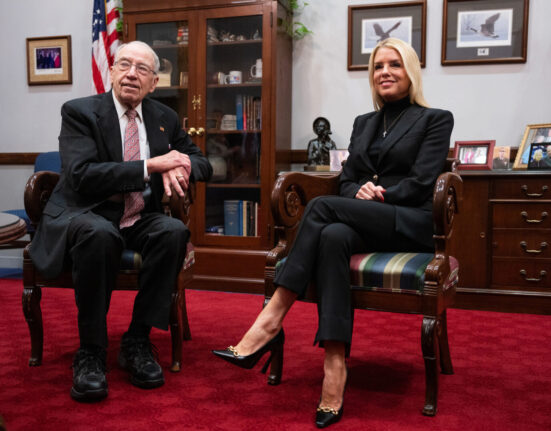In the heart of Boulder, Colorado, a sinister plot took shape as Mohamed Sabry Soliman allegedly unleashed chaos and violence on a peaceful gathering advocating for Israeli hostages’ release. The incident unfolded when Soliman, 45, threw Molotov cocktails into a crowd of individuals supporting Israel. This horrific act led to charges including first-degree murder and crimes against the elderly. As federal officials delve into the details of this targeted terror attack, shocking revelations have emerged about Soliman’s motivations and meticulous planning.
Described as a hate crime with elements of religious or racial bias, Soliman’s actions left eight people injured but thankfully no fatalities. The FBI characterized it as a premeditated assault on those expressing solidarity with Israel. During the attack, Soliman shouted “Free Palestine!
” while igniting Molotov cocktails that caused burn injuries to multiple individuals.
As investigators pieced together the events leading up to the attack, they uncovered a disturbing arsenal in Soliman’s possession. Upon his arrest, law enforcement found an assortment of unlit Molotov cocktails in a black container along with other incendiary devices like a backpack weed sprayer potentially holding flammable substances. The contents pointed to careful planning and preparation for inflicting harm on innocent victims.
The meticulous nature of Soliman’s preparations was further highlighted when authorities discovered gasoline-filled bottles and documents referencing Israel and Palestine in his vehicle. These findings underscored the extent of his radical beliefs and deep-seated animosity towards Zionist groups. In chilling statements during his interrogation, Soliman revealed his extreme ideology by expressing his desire to eradicate all Zionist individuals.
“
He stated that he wanted to kill all Zionist people and wished they were all dead.
”
Soliman’s calculated actions stemmed from a year-long plan fueled by hatred towards pro-Israel factions whom he perceived as threats to his idealized vision of reclaiming Palestinian territory. His disdain for these groups was evident through his online research leading up to the attack day—a date he strategically chose based on their scheduled meeting time.
“
He specifically targeted the ‘Zionist Group’ … because he hated this group.”
In recounting his motives behind the attack, Soliman cited a twisted sense of justice driven by perceived injustices inflicted upon Palestine—an explanation laden with extremism and intolerance towards differing viewpoints. Such radicalization underscores broader concerns surrounding terrorism and ideologically-driven violence that pose significant challenges for law enforcement agencies tasked with preventing such atrocities.
While investigations continue into this harrowing incident that shook Boulder to its core, questions linger about how individuals like Soliman can become radicalized enough to carry out acts of domestic terrorism targeting specific groups based on ideological differences. This case serves as a stark reminder of the dangers posed by extremist ideologies fuelled by hatred and fanaticism—a threat that communities must remain vigilant against in safeguarding peace and security for all.
As Boulder grapples with the aftermath of this shocking event, authorities are focused on ensuring justice prevails while reinforcing measures to prevent future acts of terror from disrupting communal harmony. The resilience displayed by residents in standing united against such violence reflects their unwavering commitment to upholding values of inclusivity and tolerance amidst challenging times.
Emerging details about Mohamed Sabry Soliman’s meticulously planned terror attack shed light on the complexities surrounding extremist ideologies that drive individuals towards committing violent acts rooted in intolerance and hatred. This unfortunate incident serves as an urgent call-to-action for society at large to address underlying issues fuelling radicalization while fostering dialogue and understanding across diverse perspectives.







Leave feedback about this